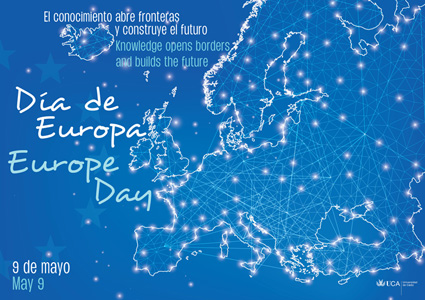Rector of the University of Cadiz, esteemed rectors of all our partner universities, esteemed colleagues of the management team of the University of Cadiz, esteemed team of the vice-rectorate of internationalisation of our university, students of our university and of all the partner universities, ladies and gentlemen, it is an honour for me to address a few brief words of recognition and tribute to the work carried out by all of you, to make the internationalisation of our university and university cooperation in the framework of higher education a reality, within the ERASMUS programme.
The origins of this programme date back to 1987, in response to the multiculturalism and globalisation of education, as a means of strengthening peace and understanding among all the peoples of our world.
During all this time, more and more countries have joined this European initiative, but with a worldwide projection in the five continents, to cooperate in international volunteering, internships in companies in other countries, international academic mobility, university cooperation projects, and meetings between the teaching and administrative staff of participating universities and those associated with the programme.
The ERASMUS programme, since its origins, has allowed the international cultural exchange to millions of people, only the last three years, 2017-2020, of the previous ERASMUS+ programme, more than two million people have participated in it, from all over Europe and countries in the rest of the world.
The acronym Erasmus stands for European Region Action Scheme for the Mobility of University Students, and there is no doubt that this acronym was also intended as a tribute to the Dutch humanist and theologian Erasmus of Rotterdam.
Erasmus of Rotterdam was ahead of his time, as he understood that international mobility enriches cultures and broadens the horizon of knowledge, to complete his studies in several European countries, studying in Paris (France) and England, sharing friendship, among others, with Thomas More, being, without doubt, an exchange for teaching purposes, teaching theology and Greek at Cambridge, what we would know today as an STA mobility in the Erasmus programme.
After his doctorate in Turin, he visited other Italian cities to share knowledge with other intellectuals, in Siena, Padua and Rome, also travelling to various cities in Germany.
The tribute that the ERASMUS programme pays to Erasmus of Rotterdam is more than justified, as the inspiration that launched this ambitious European programme for the internationalisation of higher education could not have had a better reference.
The University of Cadiz has always been, is and will always be committed to the internationalisation of higher education and the ERASMUS programme, so much so that we have been one of the top three Spanish universities in number of international mobilities in this programme for several KA107 calls.
Our university maintains excellent relations with partners throughout Europe, inside and outside the European Union, and special mention should be made of our university’s strategic commitment to strengthening ties with Eastern Europe and Central Asia. The strong relations with our Russian partners were the origin for establishing numerous alliances with all of Eastern Europe and Central Asia, creating a specialised unit, the CUNEAC, to strengthen ties with all our partners in these countries.
The strategic position of the UCA means that our priorities include partners in the Mediterranean area, the entire African continent and the Americas, maintaining close relations with universities in the USA and Canada.
Of course, due to our common culture and language, for the University of Cadiz, the whole of Latin America is key, as are our sister universities, with which we have always maintained excellent relations, and with which we are increasingly taking on more projects and collaborations, with Spanish being a vehicle of internationalisation of the first magnitude.
Looking to the future, at our university, we have considered incorporating new partners from the Asia-Pacific area, in order to share experiences and our culture with those who visit us and share their culture with us.
For all our partners, this Patio of the Nations is created in homage and recognition of the multiculturalism and internationalisation of our University, thanks to all of them.
I hope that this space, with plants representative of the different continents, the flags of the countries of our partners, and the human relations that will undoubtedly be shared here, in different languages and different cultures, will serve to strengthen the bonds of our friendship.
Thank you very much.
The ERASMUS programme, since its origins, has allowed international cultural exchange to millions of people, only the last three years, 2017-2020, of the previous ERASMUS+ programme, more than two million people have participated in it, from all over Europe and countries in the rest of the world.


